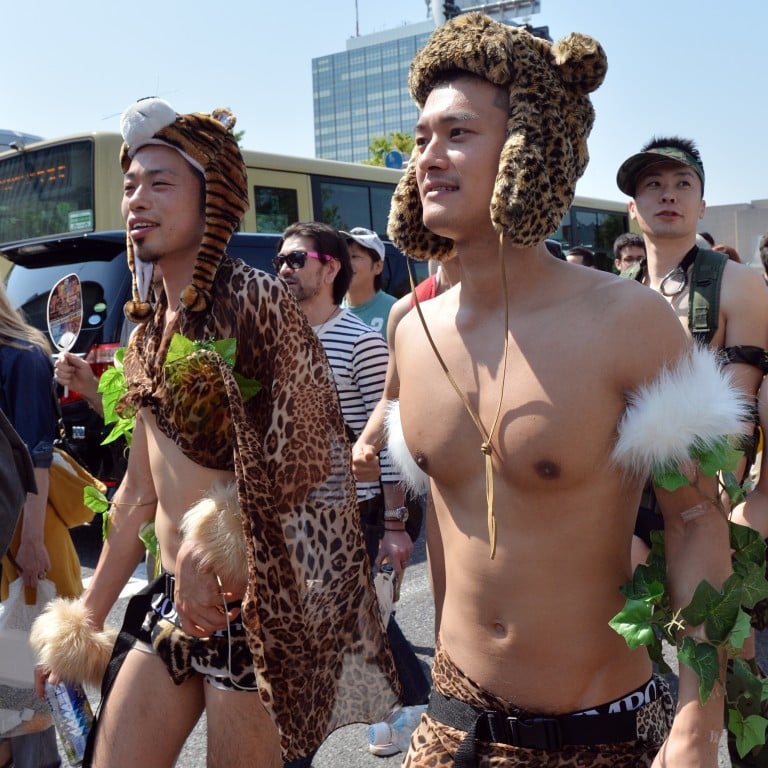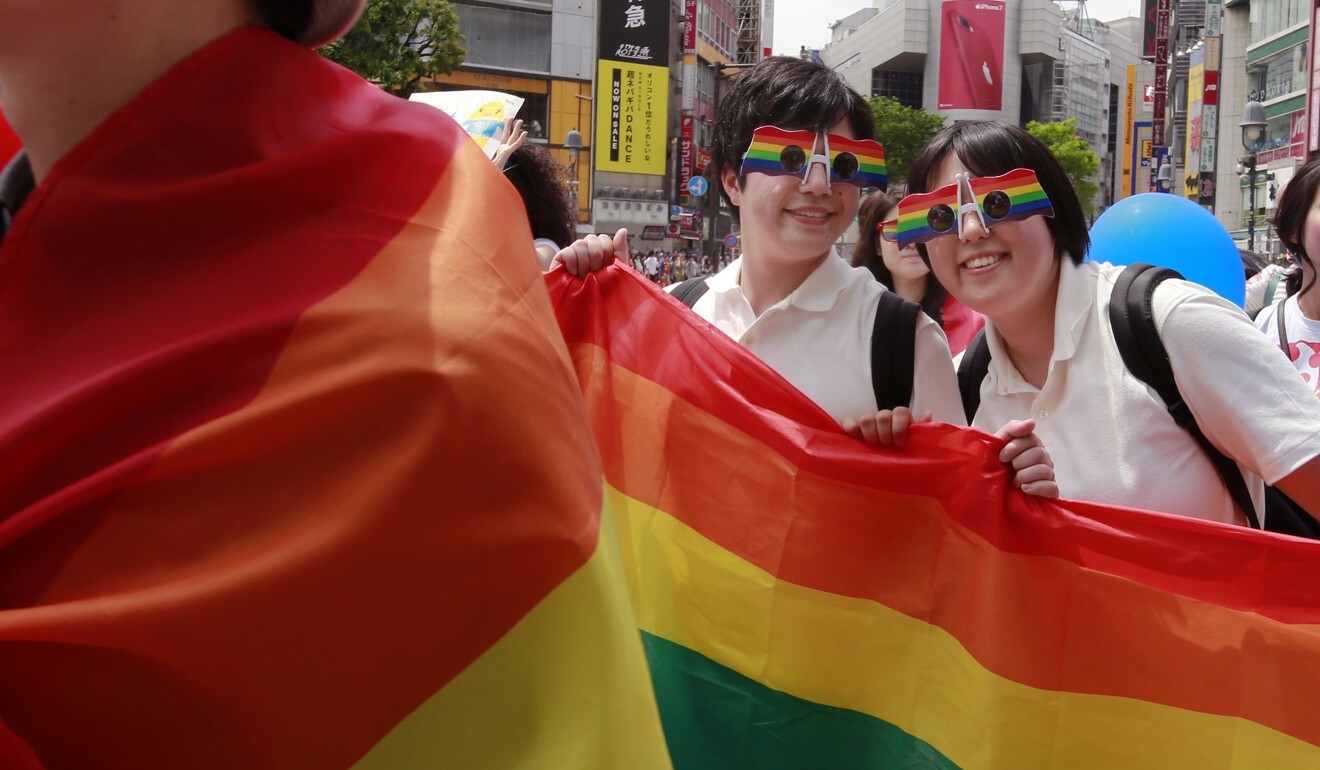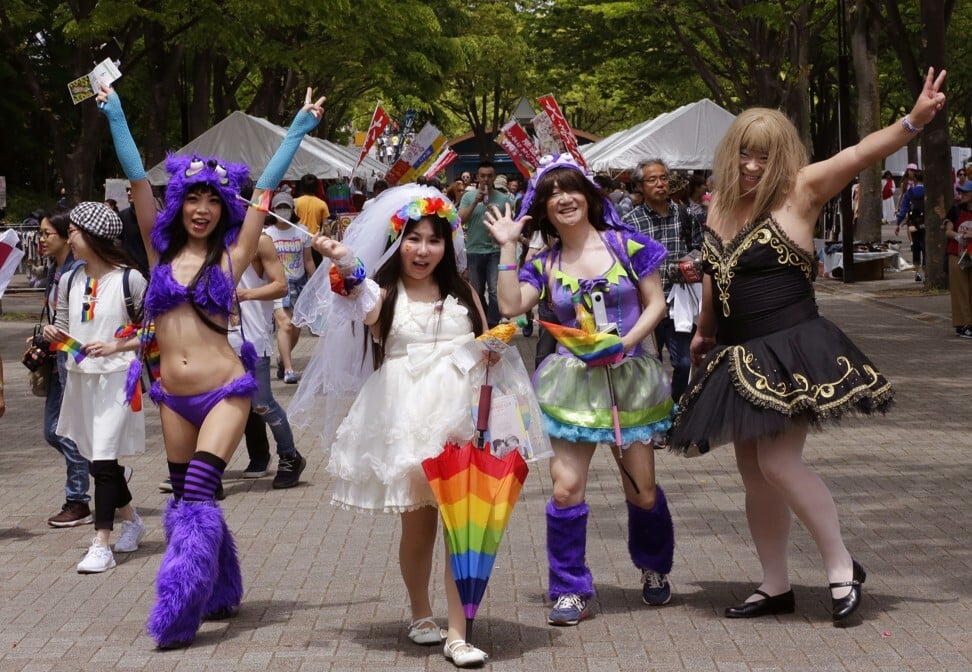
In Japan, one in four LGBTQ people have been forcibly outed: survey
- The survey of more than 10,000 respondents found transgender men were most likely to have their identities exposed without their consent, at 53.6 per cent
- However, two in three people indicated Japanese society was more welcoming towards LGBTQ people as compared with five years ago
The survey released Wednesday also showed about two-thirds of the 10,769 respondents in their teens through their 70s felt that society was more “respectful” towards lesbians, gays, bisexuals and transgender people than five years ago. However, nearly eight in 10 of those who were employed said they have heard anti-LGBTQ words.
The survey is the largest of its kind on outings, according to Yasuharu Hidaka, a professor of social epidemiology at Takarazuka University, who conducted it from September to December last year on behalf of Lifenet Insurance Co.
The survey found 25.1 per cent of respondents said they had been outed, with transgender men reporting the most such cases at 53.6 per cent.
Of the 8,690 respondents with jobs, 78.9 per cent said they “have heard discriminatory speech about sexual minorities at work or school.”
Hidaka said outings fuel “fear of those who are not out about their lives crumbling, with the worst case scenario leading to their deaths”.
“Discriminatory speech and actions increase their fear about how they would be perceived by those around them,” he added.
How a gay student’s suicide is helping Japan’s LGBT community speak up
The survey also found that 66.9 per cent of respondents said that “compared with five years ago, diversity of sexual orientation and gender identity is better recognised by society”.
“Society’s understanding continues to change. Government authorities and firms must make coordinated efforts to deepen understanding (about diversity of sexual orientation and gender identities),” Hidaka said.
While Japan does not recognise same-sex marriage, a number of municipalities issue partnership certificates for LGBTQ couples.
A law enacted in June also requires firms to take measures against abuse of power, which includes outings and insults of sexual and gender minority people in its government guidelines.

And though Japan is relatively tolerant of homosexuality, there are no specific legal protections for gay people.
Japan’s LGBTQ population has campaigned for greater recognition from the government in recent years.
Thirteen same-sex couples filed suits last year accusing Tokyo of discrimination for failing to recognise their unions.
They argue that they are being denied rights accorded to heterosexual couples and hope courts will declare the government’s position unconstitutional.
Additional reporting by AFP


